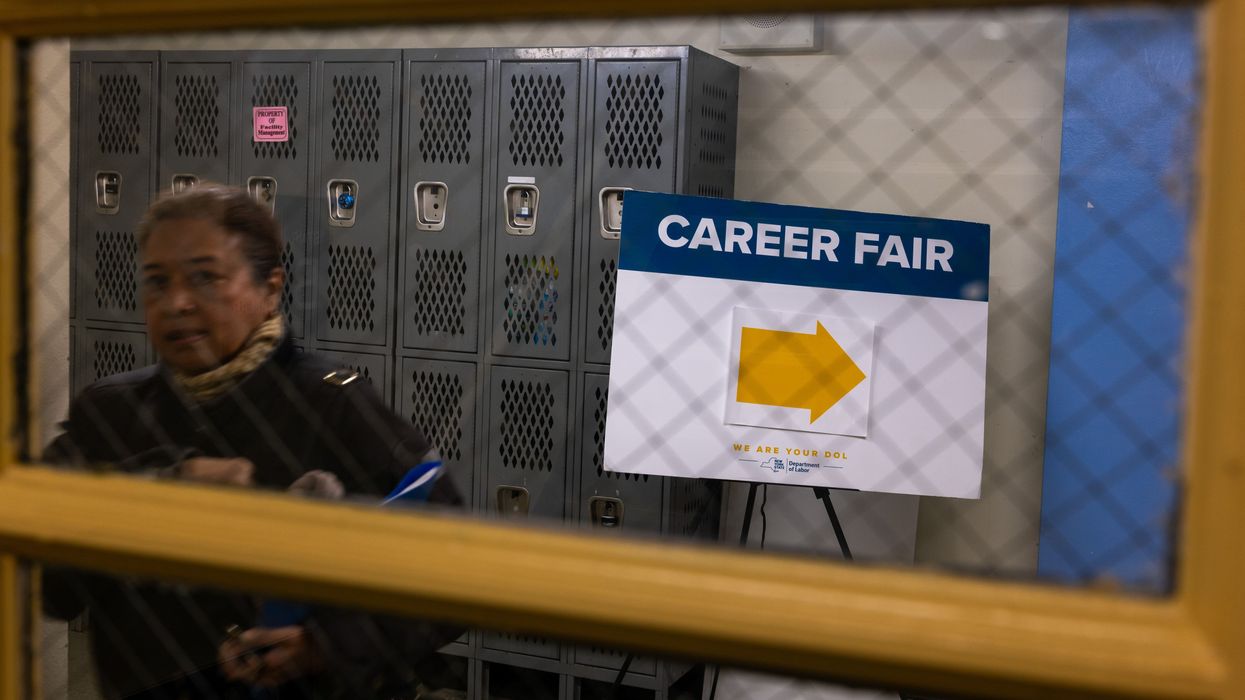July, 27 2009, 05:04am EDT
For Immediate Release
Contact:
Colby Self, Basel
Action Network (Seattle), 206.250.5652 (mobile), colby.self@gmail.com
Jim Puckett, Basel
Action Network (Amsterdam):
+31 6.47411813 (mobile), jpuckett@ban.org
Navy Set to Pollute Ocean With McCain's ship
Sinking of John McCain's Old Aircraft Carrier Denounced
SEATTLE
The toxic waste watchdog
organization Basel Action Network (BAN) today slammed the government's plans to
scuttle the former aircraft carrier FORRESTAL[1] in deep water as an
"artificial reef" instead of having the ship safely recycled at one of the
half-dozen active ship dismantling yards in the U.S. The FORRESTAL is a non-nuclear supercarrier now
moored in an aging pier on the
Naval Station at Newport, R.I.
Due to deterioration of the facility, the ship will be relocated by the
end of September 2010 and will be the first in her class of carriers to be
disposed. The ship contains large quantities of
recoverable metals such as steel, aluminum and brass, but also hazardous wastes
including asbestos, toxic paints and materials containing polychlorinated
biphenyls (PCBs)[2].
The BAN protest came in its response to the Navy's "request for
information" (RFI)[3] regarding two options for the FORRESTAL and the other carriers of its class: sinking or
recycling. Despite the Navy's apparent openness to the
recycling option, the Navy has already spent $6.4 million preparing the
ship for scuttling and insiders say that her fate at the ocean bottom is
already decided. BAN notes that the deep
water dumping sought by the Navy for security reasons will not benefit sport divers
and there is no scientific evidence that artificial reefs enhance
fisheries. More importantly, BAN insists that such ocean dumping ravages
the marine ecosystem, hammers U.S.
taxpayers with unnecessary expense, costs U.S. jobs, and violates international
law against ocean dumping.
"Once the toxic waste
is carefully removed and treated, these old naval vessels are a treasure trove
of recyclable metals. Dumping these old warships in the sea and damaging the marine
environment, while squandering green recycling jobs and precious resources,
would be the most dishonorable discharge imaginable," said Colby Self, BAN's Green Ship Recycling Coordinator.
While the Navy will
remove some of the PCBs on board, it is not expected that they will remove all
of them nor the toxic paints. In 2006,
when the Navy sunk another aircraft carrier, the ORISKANY, off the coast of Florida, they spent $23.6
million in total for the entire job and still left 700 pounds of pure PCBs
on the ship as well as toxic heavy metal based paints. Domestic recycling, on the other hand, will properly
recycle the toxic materials and defray the costs for doing so by recovering the
valuable scrap metal. It also will lower
the overall carbon footprint and environmental impact demonstrably, as
recycling is far less energy intensive and damaging to the environment than
primary metals production. According to
BAN's estimates, domestic recycling will cost the government no more than 6
million dollars for a ship like the FORRESTAL.
Further, the
deliberate dumping of organohalogen compounds such as PCBs is illegal under
international law,[4] and also flies in the face of 1998 Executive Order 13101
on "Greening the Government through Waste Prevention, Recycling and Federal
Acquisition" which states that national policy must "prefer pollution
prevention, whenever feasible. Pollution that cannot be prevented should be
recycled; pollution that cannot be prevented or recycled should be treated in
an environmentally safe manner. Disposal should be employed only as a last
resort."
According to the
Navy's own figures, the Forrestal alone contains a total of 39,957 long tons[5]
of fully recoverable scrap metals. BAN
claims that in the U.S. there are numerous recyclers capable of doing this job
including Marine Metals LLC, All-Star Metals LLC, International Shipbreaking
LLC, ESCO Marine, Baybridge Enterprises, Southern Scrap Materials LLC and
others, all seeking to provide green recycling jobs.
"The days of treating our seas as trash dumps must come to an end," said
Colby Self. "Recycling is not only the
right thing to do, and the legal thing to do, but it entails far less costs on
taxpayers. Once all the facts are on the
table, the Navy's choice to recycle its aging fleet rather letting it pollute the
marine environment cannot be more clear," he said.
For a copy of BAN submission: www.ban.org/Library/ForrestalSubmission.pdf
[1] Senator John McCain served on the
FORRESTAL in 1967 and was involved in the infamous fire on board the vessel
that year in which 132 crew members perished.
[2] PCBs - The toxicity of PCBs to
animals was first noticed in the 1970s when emaciated seabird corpses with very
high PCB body burdens were washed up on beaches. PCBs exhibit a wide range of toxic effects
and are of particular concern in the marine environment. These effects include: Toxicity of PCBs to
invertebrates and fish in the water column; accumulation in sediments and
potential hazard to sediment-dwelling organisms; bioaccumulation of PCBs in
fish, birds and Annex II sea mammals with known sublethal toxicological
effects; endocrine disruption in birds
and sea mammals posing a hazard to populations of these animals.
[3] https://www.neco.navy.mil/synopsis_file/N0002409R4224RFI_Carrier_Disposal.doc
[4] The London Convention of 1972 of
which the U.S.
is a Party, lists "Organohalogen compounds" as prohibited from deliberate
disposal in the sea. The EPA has
designated this type of "artificial reefing" as disposal and thus according to
the London Convention, unless all PCBs are removed, such disposal is illegal. https://www.aU.S.tlii.edu.au/au/other/dfat/treaties/1985/16.html
[5] Long
ton - one long ton equals 2,240 pounds.
Basel Action Network's mission is to champion global environmental health and justice by ending toxic trade, catalyzing a toxics-free future, and campaigning for everyone's right to a clean environment.
LATEST NEWS
New Unemployment Claims Jump to Highest Level in Months as Trump Economy Teeters
"While President Trump calls affordability a ‘hoax,’ countless families are being forced into impossible tradeoffs every day."
Dec 11, 2025
Federal data released Thursday shows that the number of Americans filing for unemployment benefits surged last week, another indication of growing instability in President Donald Trump's economy as corporations lay off workers en masse and prices continue to rise.
For the week ending December 6, new unemployment claims jumped to 236,000—an increase of 44,000 from the previous week, according to figures from the US Labor Department.
Andrew Stettner, an unemployment insurance expert at The Century Foundation (TCF) noted that new unemployment claims are now at their highest level since early September.
"These totals don’t include an additional 12,732 former federal workers who are also now relying on unemployment benefits, as the number of federal workers on UI has stayed at levels not seen since the pandemic, even after the government shutdown has ended," Stettner said.
"This disappointing news comes on the heels of other troubling labor market data," he continued, pointing to private-sector payroll figures showing the US economy lost 32,000 jobs in November. "With hiring still so weak, it is no surprise that the percentage of workers feeling confident enough to quit their job dropped to its lowest level since the beginning of the pandemic in April 2020. In fact, our polling shows that 27% of Americans said they took on a 'second job, side hustle, or gig work' in the past year to help make ends meet."
The updated unemployment numbers come as Trump is on an economic messaging tour during which he has dismissed the notion that his policies have worsened the country's affordability crisis, calling such claims a Democratic "hoax" even as polling shows Americans—including a significant percentage of his own voters—increasingly blame the president for rising costs groceries and other necessities.
"We inherited the highest prices ever, and we’re bringing them down,” Trump said, falsely, during a stop in Pennsylvania earlier this week.
"We’re crushing it, and you’re getting much higher wages,” the president added, another falsehood.
Survey data released Thursday by The Century Foundation shows that Americans are increasingly skipping meals and doctor visits as prices rise.
"Roughly three in 10 voters delayed or skipped medical care in the past year due to cost, while nearly two-thirds switched to cheaper groceries or bought less food altogether," the group noted in a summary of its findings. "About half tapped into their savings to cover everyday expenses."
Julie Margetta Morgan, president of The Century Foundation, said in a statement that "while President Trump calls affordability a ‘hoax,’ countless families are being forced into impossible tradeoffs every day as a result of Trump’s disastrous policies that are jacking up prices."
"Working-class Americans are living in a different, harsher economy under Trump," Morgan added, "and they feel the impacts of financialization—and the added risks and costs that come with it—most severely."
Keep ReadingShow Less
Trump Economic Approval Hits All-Time Low as White House Official Insists ‘Nothing Bad Is Happening’
“Trump’s claims about inflation are false, and you can go to the grocery store and see it yourself,” said one economist.
Dec 11, 2025
A new poll shows US voters' approval of President Donald Trump's handling of the economy has hit an all-time low, even as the president and his officials insist the economy is the best in the world.
The latest Associated Press-NORC Center for Public Affairs Research poll released Thursday found that only 31% of voters approve of Trump's handling of the economy, the lowest figure in that survey throughout either of his two terms in office. Overall, 68% of voters said that the current state of the economy was "poor."
What's more, Trump's approval rating on the economy among Republican voters now stands at just 69%, a strikingly low figure for a president who has consistently commanded loyalty from the GOP base.
Despite the grim numbers, the president and his administration have continued to say that the US is now in the middle of an economic boom.
During a Thursday morning interview on CNBC, Commerce Secretary Howard Lutnick said that the US now has "the greatest $30 trillion economy in the world."
"We are doing great," Lutnick said. "Nothing bad is happening. Greatness is happening. We grew at 4% GDP! Come on!"
Lutnick: "Jay Powell is too afraid to lead the greatest $30t economy in the world. We should be leading with our front foot. Instead we are always leaning back as if something bad is happening. We are doing great. Nothing bad is happening. Greatness is happening. We're growing 4%… pic.twitter.com/uWqrlwpllE
— Aaron Rupar (@atrupar) December 11, 2025
Lutnick's message echoes the one Trump delivered earlier this week during a rally in Pennsylvania, where he said that voters' concerns about being able to afford basics such as groceries, electricity, and healthcare were a "hoax" concocted by Democrats.
"Prices are coming down very substantially," Trump falsely claimed during his speech. "But they have a new word. You know, they always have a hoax. The new word is affordability."
Trump on the US economy: “I said it the other day. And a lot of people misinterpreted it. They said ‘Oh he doesn’t realize prices are high.’ Prices are coming down very substantially. But they have a new word. You know, they always have a hoax. The new word is affordability.” pic.twitter.com/JkErFnkT1D
— Sahil Kapur (@sahilkapur) December 10, 2025
As NPR reported on Thursday, data shows that the prices of groceries and electricity have continued to rise throughout Trump's second term, directly contradicting his claims that prices are "coming down."
University of Michigan economist Betsey Stevenson told NPR that Trump is playing with fire by making false claims about prices when US consumers can see costs persistently going up.
"Trump's claims about inflation are false, and you can go to the grocery store and see it yourself," Stevenson said.
Even some members of Trump's own party are growing wary of him insisting that America is experiencing an unprecedented economic boom when voters feel otherwise.
Sen. Lisa Murkowski (R-Alaska) told The Hill that Trump's insistence on making happy talk about the economy would not fly with voters.
"You can’t call it a hoax and suggest that people are going to believe it," she said. "What you say matters."
An anonymous Republican senator also told The Hill that they were concerned about the optics of Trump building a massive luxury ballroom in the White House at a time when Americans say they are struggling financially.
"The cost of living just makes life very difficult on people," the senator stressed.
And Sen. Shelley Moore Capito (R-W.Va.) gently pushed back on Trump's messaging by telling CNN that "a lot of people are still having trouble making ends meet" in her state.
Keep ReadingShow Less
Trump Tariffs Have Cost Average US Family Nearly $1,200 So Far
"The president’s tax on American families is simply making things more expensive.”
Dec 11, 2025
As President Donald Trump persistently claims the economy is working for Americans, Democrats in the US House and Senate on Thursday released an analysis that puts a number to the recent polling that's found many Americans feel squeezed by higher prices: $1,200.
That's how much the average household in the US has paid in tariff costs over the past 10 months, according to the Joint Economic Committee—and costs are expected to continue climbing.
The Democrats, including Ranking Member Sen. Maggie Hassan (D-NH), Sen. Martin Heinrich (D-NM), and Rep. Sean Casten (D-Ill.), analyzed official US Treasury Department data on the amount of tariff revenue collected since the beginning of Trump's second term as he's imposed tariffs across the European Union and on dozens of other countries—some as high as 50%.
The White House has insisted the tariffs on imports will "pry open foreign markets" and force exporters overseas to pay more, resulting in lower prices for US consumers.
But the JEC combined the Treasury data with independent estimates of the percent of each tariff dollar that is paid by consumers, as companies pass along their higher import prices to them.
At first, US families were paying an average of less than $60 in tariff costs when Trump began the trade war in February and March.
But that amount shot up to more than $80 per family in April when he expanded the tariffs, and monthly costs have steadily increased since then.
In November, a total of $24.04 billion was paid by consumers in tariff costs—or $181.29 per family.
“While President Trump promised that he would lower costs, this report shows that his tariffs have done nothing but drive prices even higher for families."
From February-November, families have paid an average of $1,197.50 each, according to the JEC analysis.
“While President Trump promised that he would lower costs, this report shows that his tariffs have done nothing but drive prices even higher for families,” said Hassan.
If costs remain as high as they were over the next 12 months, families are projected to pay $2,100 per year as a result of Trump's tariffs.
The analysis comes a week after Republicans on a House Ways and Means subcommittee attempted to avoid the topic of tariffs—which have a 61% disapproval rating among the public, according to Pew Research—at a hearing on global competitiveness for workers and businesses.
"Rep. Jimmy Gomez [D-Calif.] read several quotes from [former Rep. Kevin] Brady [R-Texas] during his time in Congress stating that tariffs are taxes that impede economic growth. Brady, who chaired the Ways and Means Committee and drafted Trump’s first tax law in 2017 (and now works as a lobbyist), had no desire to discuss those quotes or the topic of tariffs," wrote Steve Warmhoff, federal policy director at the Institute on Taxation and Economic Policy. "Nor did Republicans address the point made by the Democrats’ witness, Kimberly Clausing, when she explained that Trump’s tariffs are the biggest tax increase on Americans (measured as a share of the economy) since 1982."
Clausing estimated that the tariffs will amount "to an annual tax increase of about $1,700 for an average household" if they stay at current levels, while Trump's decision to lower tariffs on goods such as meat, vegetables, fruits, and coffee last month amounted to just $35 in annual savings per household.
The JEC has also recently released analyses of annual household electricity costs under Trump, which were projected to go up by $100 for the average family despite the president's campaign pledge that "your energy bill within 12 months will be cut in half."
Last month the panel found that the average household is spending approximately $700 more per month on essentials like food, shelter, and energy since Trump took office.
“At a time when both parties should be working together to lower costs," said Hassan on Thursday, "the president’s tax on American families is simply making things more expensive.”
Keep ReadingShow Less
Most Popular


